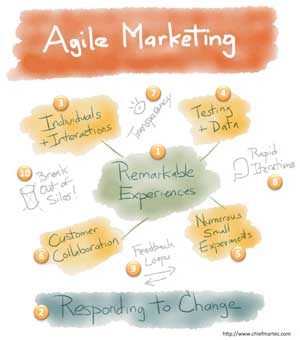It’s generally not a smart idea to begin a company blogpost with a political opinion quote, but today I’m throwing caution to the wind to make this point: perfection ain’t all that it’s made up to be.
New York Times opinion writer, Tom Friedman, describes the world as flatter, faster, and hotter than it used to be. Why? Technology. Technology (and globalization) have broken down physical and economic barriers, making it possible for teammates to be on opposites sides of the world as much as across town.
Writing about the recent political conventions, he considers President Obama’s comments that “if you work hard and play by the rules” you should expect a pretty good life in the United States. I digest this as the American dream: do it right and you’ll be fine. Do it “wrong” and, well, you know…
Friedman believes this is a bunch of baloney and that people should order you to work much, much harder. You have to regularly reinvent yourself while also playing by the rules. Translation: what you did last year might not be so valuable next year, so don’t rest on your laurels. He quotes futurist Alvin Toffler to summarize this new reality:
In the future “illiteracy will not be defined by those who cannot read and write, but by those who cannot learn and relearn.” Any form of standing still is deadly.
This particularly applies to marketing, especially if you have anything to do with online marketing (who doesn’t, I ask?). The internet and its participants move so darn fast, it’s clear that there is no end to this tunnel. Lucky for me, there is a theory already in place to explain how to handle this fast-changing environment: Agile Marketing. Rather than summarize the whole thing and explain why a customer-centric, highly collaborative, fast-release marketing culture makes sense for today’s environment, watch this video instead:
So, What does This Mean for Perfectionists and Humanists?
Many of the people I work with are either perfectionists or humanists, that is, they identify very strongly with their work as a reflection of themselves. In both cases, they tend to come from creative or technical backgrounds, and hold themselves to incredibly high standards. In both cases, they hate putting out crap and they resent the fact that I make them do it each day.
When it comes to marketing and communication, my instinct has always been in line with agile marketing: get it out there, experiment passionately, always listen to the feedback, fail often.
- Live and let live
- Hop on a moving train
- Another ‘No’ is just a step closer to a ‘Yes’! And that kind of thing…
My cultural background (people come first) and training (I was a classical musician before I became an internet marketer) tells me that you’ve got to identify strongly with the work you put out, that good things take time, that each word counts, and that you should practice, practice, practice before you walk onstage. To quote an Amish farmer: “a farm is only as good as its soil.”
So, how to meld the two? The answer is simple, and well explained in agile marketing: focus on the customer. More clearly: embrace the reality that your customers (or users) are an integral part of your success and invite them into the process by being more agile.
Your customers are on your team! And if you don’t give them a seat at the table – a way to participate in the conversation – then it’ll take blind luck to get what you’re trying to do for them right…and by the time you do get it right, the world and conversation and customers will have changed.
As agile marketing theory makes clear, getting your marketing efforts out to the customer on a regular basis does not mean you have to sacrifice quality. In fact, you should focus immensely on the details, but the ones that matter to your customers.
So, don’t spend a lot of time formatting the report for your boss or the email to your colleagues. Spend that time crafting the perfect pixels for the error message they receive on your form, or some other minutiae that matters a lot to your users and to your marketing success. Be a perfectionist and a humanist: but be that old-world self of yours for the sake of your customers.
Learn more about things that inspired this post:






One Reply to “Agile Marketing, And What It Means for Real People with Feelings”
Jacob,
Great post! I particularly like the last paragraph. Thanks.